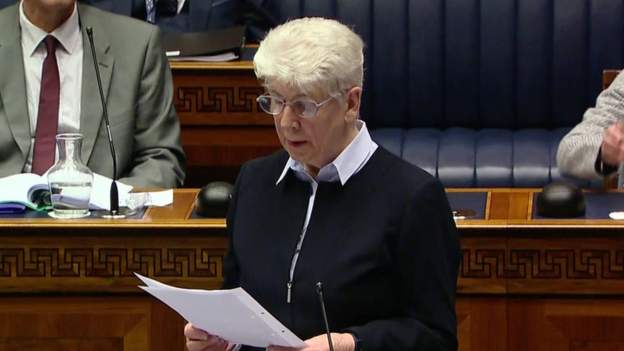
Sister Cornelia Walsh of the Sisters of Nazreth Order
Sister Cornelia Walsh of the Sisters of Nazareth also survivors who took their seats in the Assembly chamber.
The Sisters of Nazareth had homes in Derry and Belfast where children were abused both physically and sexually.
Said Sr Walsh: “We offer this sincere apology to you if you were in the care of Nazareth Houses in Belfast and Derry and for those were sent to Australasia as young children, for those whose experiences under our care between 1922 to 1995 had a detrimental impact on you.
“We recognise your pain and the long-awaited journey you have travelled to reach this day.”
Sister Walsh added there are no acceptable excuses for what happened to abuse victims.
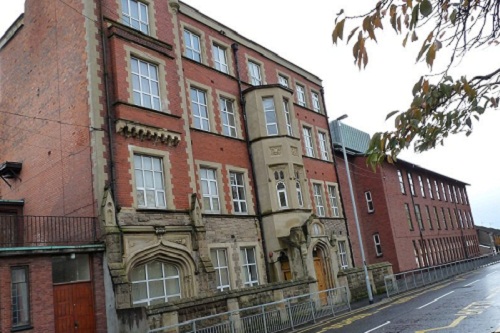
The former Nazareth House on Derry’s Bishop Street.
She said there was a regime of excessive chores and this amounted to a form of abuse.
“We accept that when you sought our help to prevent physical or sexual abuse we did not believe you.”
Fr Francis Manning, from the De La Salle Brothers religious order, also issued an apology.
He started by saying they accepted responsibility “on our part in which the standard of care did not always respond appropriately to the many needs of vulnerable children”.
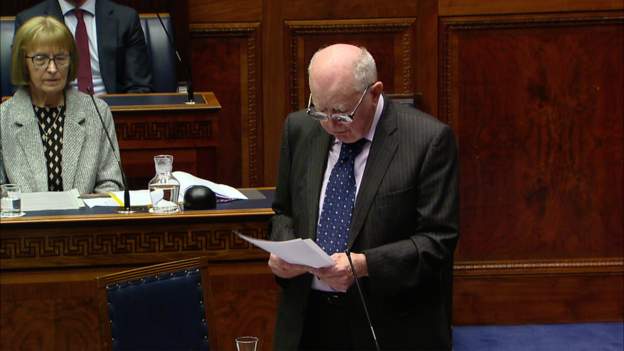
Fr Tom Manning of the De La Salle Religious Order
“We accept there were children in our care subjected to physical and sexual abuse.
“We accept we did not take sufficient investigations into allegations of abuse and ensure prosecutions were appropriate.
“These serious failure are a matter of profund regret to the De La Salle brothers.”
Fr Manning said he accepted Sir Anthony Hart’s conclusion “that it happened to some boys is enough to find systemic failure to keep boys safe from harm”.
He said the order “recognises that fear, shame and punishment were experienced” and that those affected “carried this trauma throughout their lives”.
Fr Manning said education was poor that some children left unable to read or write.
“Their experiences have left lasting damage,” he says.
“We recognise our part in the pain caused to you.
“We cannot undo it but we wish to say we are genuinely sorry.”
Uainin Clark, the regional leader for Ireland from the Sisters of St Louis, which ran St Joseph’s Training School in Middletown, County Armagh.
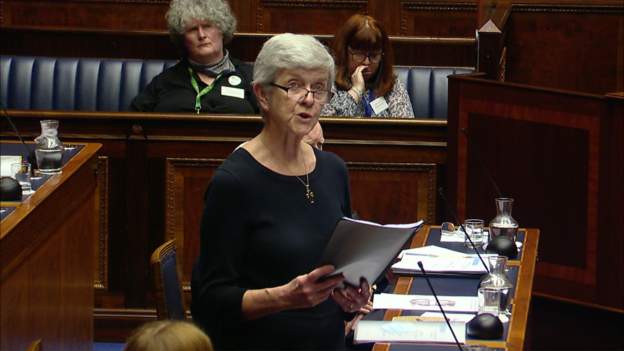
Uainin Clark, the regional leader for Ireland from the Sisters of St Louis,
“To those of you who suffered at any time while in St Joseph’s and are still carrying that pain, we say: We are especially sorry that when you were a child or a teenager you did not always feel safe or believed by those in St Joseph’s.
“Instead of meeting love and encouragement you sometimes met the opposite – harshness and a lack of love and understanding.
“Any child or teenager who was ever in St Joseph’s Middletown was vulnerable and so it was truly shameful that you did not know for who or to whom you could turn to support.”
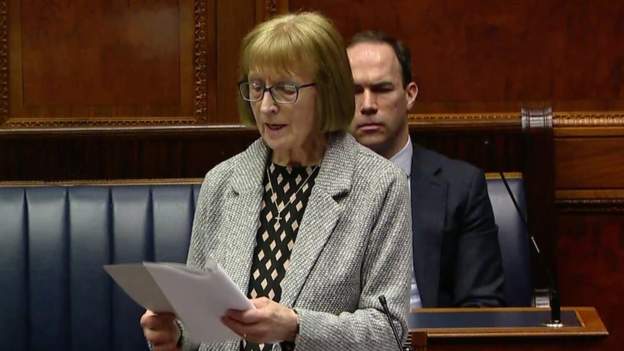
Sister Cait O’Leary of the Good Shepherd Sisters
She said the process of changing names should not have happened and that the humiliation of those in their care for misdemeanors amounted to emotional abuse.
“For children admitted in an emergency situation we acknowledge that you did not receive appropriate long-term child-centred care and it was not acceptable that you were expected to take engage in industrial work,” she added.
“For this practice we are truly sorry.”
Michele Janes, the director of Barnardo’s NI, also issued an apology.
She said: “We now know there were times when we failed to query the behaviours that staff displayed.
“When concerns were reported – we did not use the systems and processes we had in place robustly enough to ensure your voice was heard and to address concerns.”
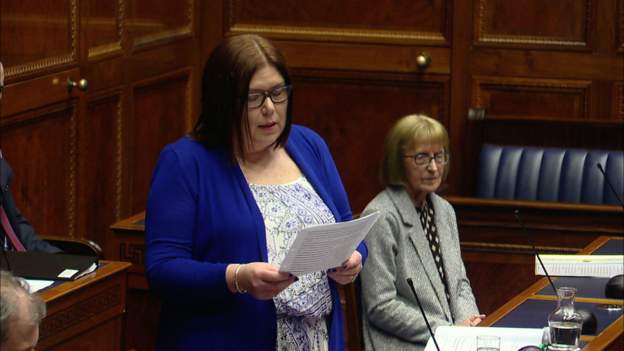
Michele Janes, the director of Barnardo’s NI
“Instead, they moved around freely,” she said.
“We are sorry.
“It created a climate of fear when you should have felt nurtured and safe.”
Ms Janes said she has spoken to victims and has reflected on their experiences.
“You were clearly let down when you were most vulnerable,” she said.
“What happened to you has affected you as you have grown into an adult… raised families of your own… it has affected your relationships.”
“We can’t go back and change things but we have learned from our failings.”
Ms Janes said Barnardo’s has changed how they train staff to ensure children are protected and robust checks are carried out in advance.
The final speaker representing institutions is Rev Mark Jones, from the Irish Church Missions, a Church of Ireland organisation which ran Manor House home in Lisburn from 1929 until its closure in 1984.
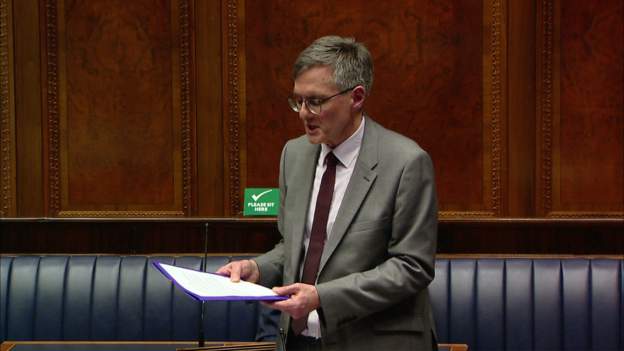
Rev Mark Jones, from the Irish Church Missions
“These were crimes that could have been detected and should have been prevented. And we acknowledge that such violations robbed you of your childhood and that you continue to live with the consequences to this day.”
He said the organisation recognises the courage of survivors in coming forward.
“Our trustees, management and staff failed you while you were in our care,” he added, before offering an unreserved apology to those who were abused while resident in Manor House home.
Tags:




